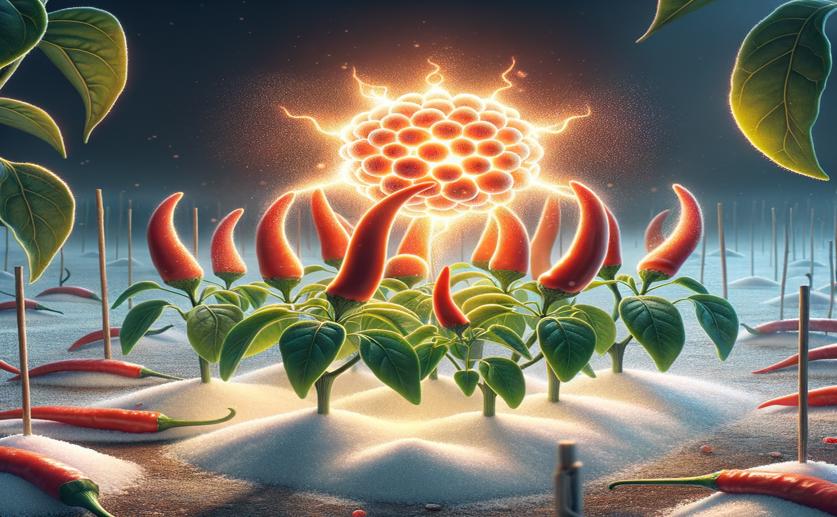
How Strigolactone Helps Chili Peppers Tolerate Salt Stress
Greg Howard
24th March, 2024

Image Source: Natural Science News, 2024
Key Findings
- In a study at Bahauddin Zakariya University, strigolactone helped chili plants grow better in salty soil
- Chili plants treated with 20µM strigolactone showed up to 60.74% more fruit yield under salt stress
- This treatment also increased chlorophyll and essential nutrients in the plants, improving overall health
AgricultureBiochemPlant Science
References
Main Study
1) The role of strigolactone in alleviating salinity stress in chili pepper.
Published 23rd March, 2024
https://doi.org/10.1186/s12870-024-04900-4
Related Studies
2) Evaluating the hidden potential of deashed biochar in mitigating salinity stress for cultivation of fenugreek.
3) Differential responses of chili varieties grown under cadmium stress.
4) γ-Aminobutyric acid (GABA) and ectoine (ECT) impacts with and without AMF on antioxidants, gas exchange attributes and nutrients of cotton cultivated in salt affected soil.



 5th March, 2024 | Jenn Hoskins
5th March, 2024 | Jenn Hoskins